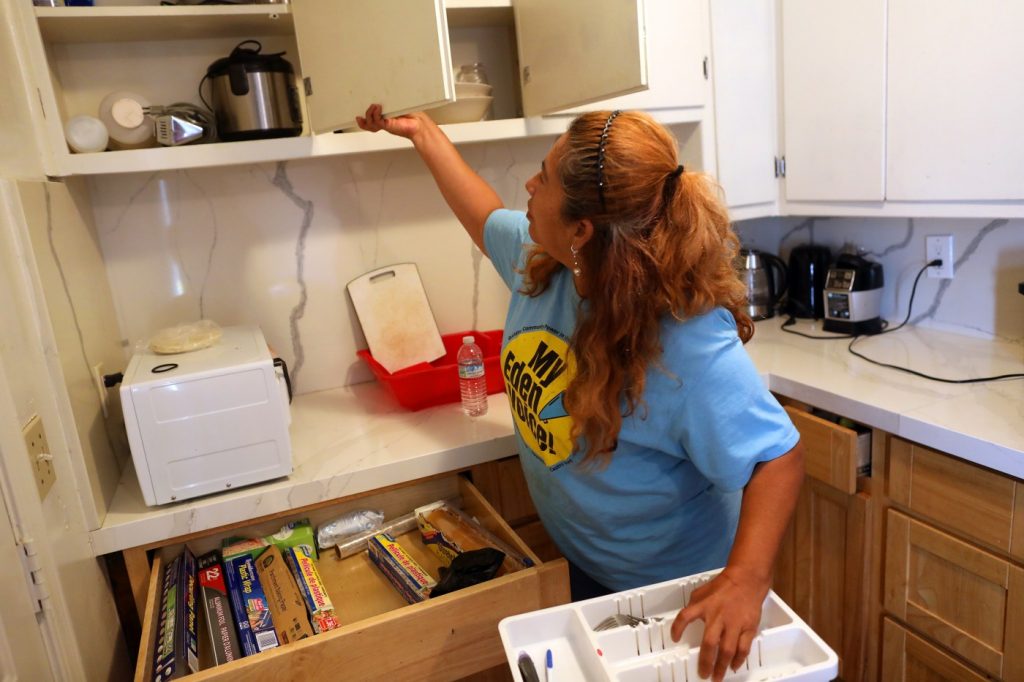Renters in unincorporated Alameda County, living in conditions that a critical report called “legally uninhabitable,” may finally see improvements if the Board of Supervisors approves updates to its tenant ordinances.
The revised regulations will expand “just cause” eviction protections to single-family homes of unincorporated county residents and establish compulsory mediation in rental disputes and evictions, creating a new balance of power between tenants and landlords.
Housing advocates have expressed support for the new ordinances.
“We recognize the importance of balancing the needs of small landlords with tenants, and we believe the proposal accomplishes just that,” said Julia Vazquez of the grassroots tenants’ rights organization Eden Voice, at a Board of Supervisors meeting on Sept. 17. “We are willing to compromise… and believe this is a reasonable accommodation.”
In 2018, the Board of Supervisors directed county staff to craft updates for the county’s rental ordinances based on meetings with renters and landlords. Renters have cited poor living conditions in Alameda County’s unincorporated communities for years, according to surveys by My Eden Voice and East Bay Housing Organizations.
One of those renters, Elena Torres, said she and other tenants where she lives in Cherryland have had to take their landlords to court to get repairs made at the property. She accused her landlord of threatening to use “eviction as retaliation” for those maintenance requests. That’s why she is urging the Board of Supervisors to pass the “just cause” eviction protections which stipulate that valid reasons must be given to evict tenants, such as violating the terms of the lease or creating a nuisance.
“We are not getting a free place to live. We are paying, and we are not taking advantage,” Torres said. “At the end of the day, they are the ones who decide to be in the business of rental property. And as a business owner of rental property, they should take the responsibility (to fix the property).”
The proposed ordinance would also enhance the county’s rules on mediation in rental disputes. Currently, mediation is a voluntary process that tenants do not have to participate in. This often leads to court cases where landlords foot the bill while tenants may refuse to pay rent until the case is resolved, according to the Alameda Community Development Agency.
The new proposal gives “more teeth” to the county’s ordinances, said deputy director of Alameda County’s Community Development Agency Jennifer Pearce. The revised ordinance would make mediation mandatory for tenants and create a new program to oversee mediation in rental disputes before involving the legal system.
“Not only is mediation cheaper, it’s shown to be fairly effective,” Pearce said.
“We think this is a game-changer,” said Eric Barnes from East Bay Rental Housing Association in support of the mediation ordinance.
The Board of Supervisors made their final edits to the proposals on Sept. 17. The ordinance will receive its first reading in October, Pearce said. A second reading — and a passing vote — could come before the end of the year. However, the Board of Supervisors remains divided.
“A lot of the concerns from the tenant groups are about the livability, the conditions of the rental units. That’s not going to be solved with just cause or the provisions that are being called for,” Supervisor Lena Tam said before alluding to state law covering “just cause” evictions. “We have mechanisms in place.”
Supervisor Elisa Márquez disagreed with Tam and stressed the importance of passing the protections for renters. She added that delays from the Board of Supervisors were detrimental to renters in unincorporated areas who do not have avenues to redress their concerns like the citizens of Oakland, Hayward or Berkeley do.
“It feels like we continue and continue to delay this much-needed protection,” Márquez said, as Tam prioritized passage of the mediation ordinance. “There’s been many, many concessions from renters, and our housing element is at risk of losing $55 million in grant funding.”
The end may be in sight six years after the Board of Supervisors authorized staff to review Alameda County’s rental ordinance.
But passage cannot happen soon enough for Torres and her 13-year-old daughter who returned to school this fall. Torres fears how an eviction could upset not only her family’s housing security but also how it could cause stress for her daughter if she is forced to move schools.
“What about our families? What about the school of my daughter?” Torres said. “How bad is this going to affect my daughter to know that we have to leave the house only because I asked (our landlord) to remove the roaches?”


